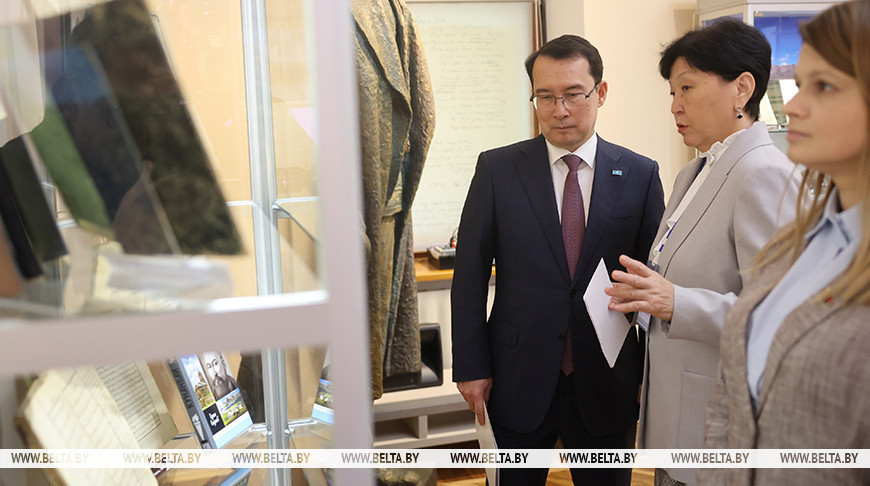
MINSK, 27 August (BelTA) - An exhibition titled “I Do Not Compose Poetry for Amusement...” from the collection of the Abai State Historical, Cultural, Literary, and Memorial Museum Zhidebay-Borili (Semey, Kazakhstan) is on show at the Yanka Kupala State Literary Museum in Minsk, BelTA has learned.
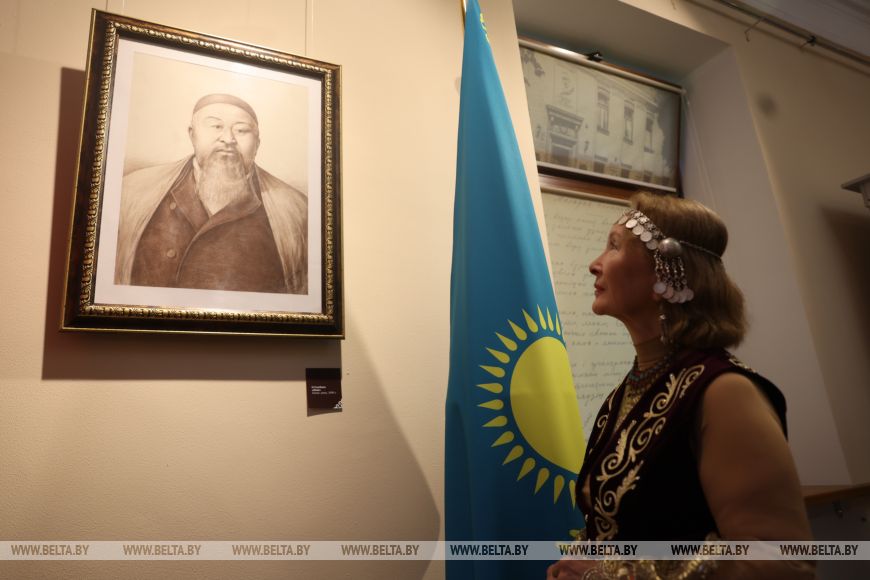
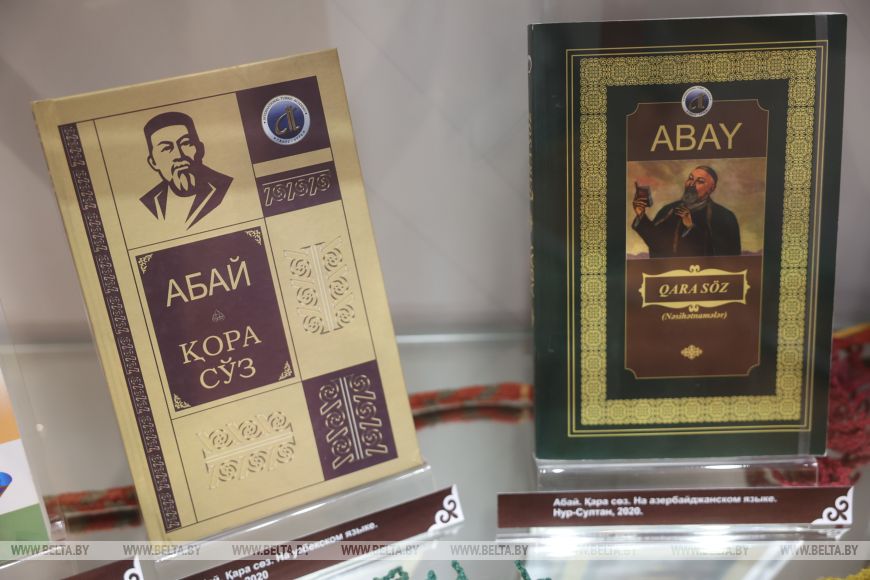
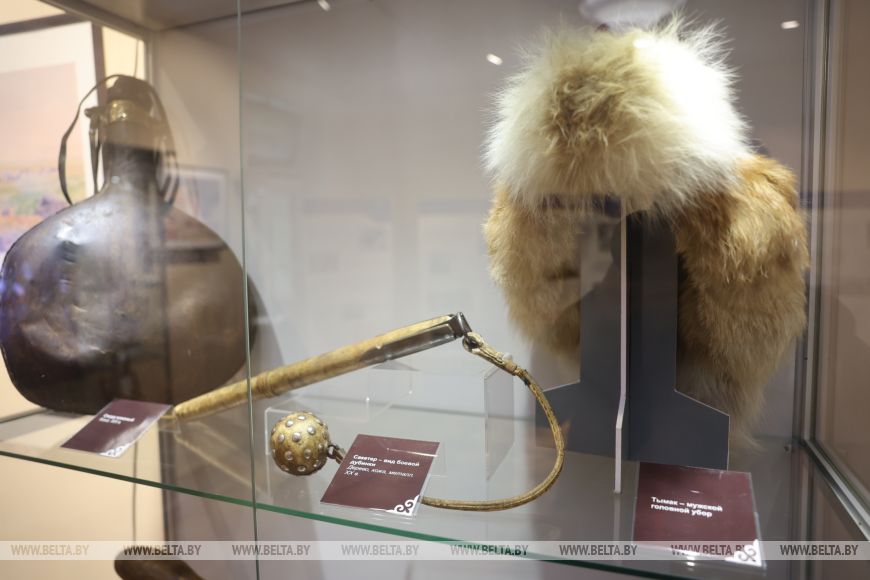
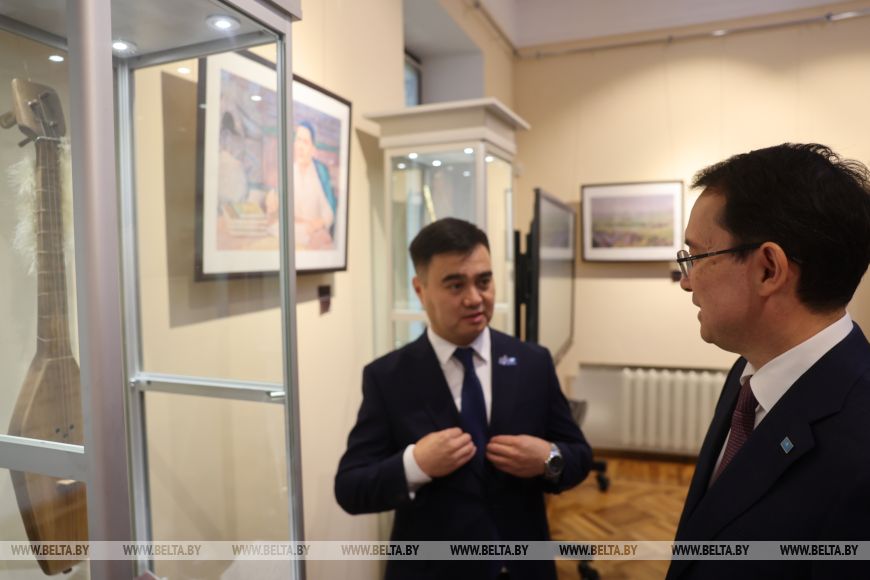
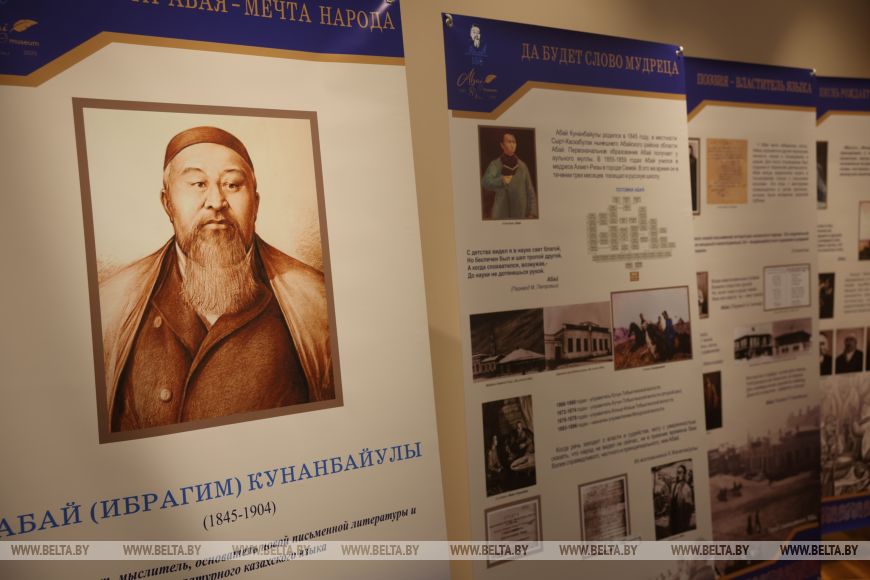
The project is celebrating the 180th birthday of Abai Qūnanbaiūly (1845-1904), the famous poet, founder of Kazakh written literature and the literary language, translator, and composer. The exhibition features originals of his works, personal items, and everyday objects kept at the Kazakh museum.
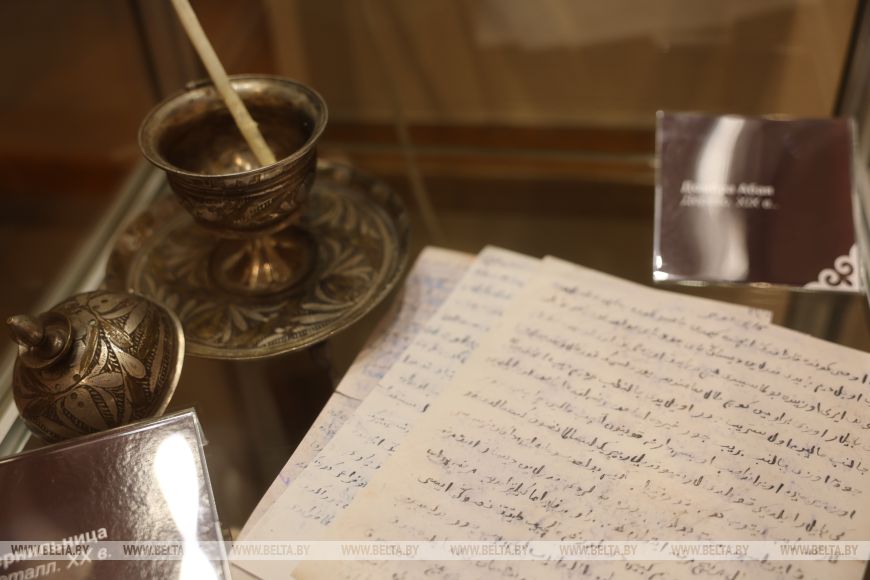
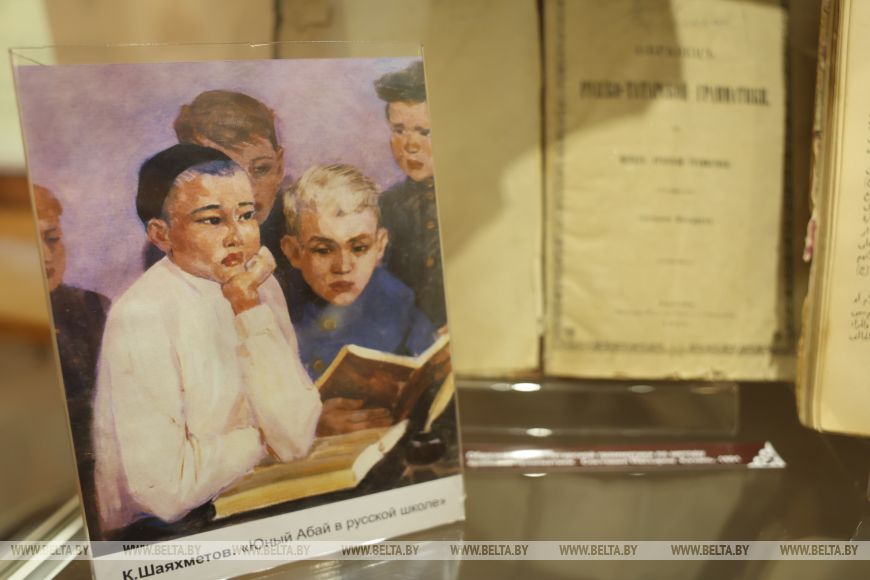
According to Ambassador Extraordinary and Plenipotentiary of the Republic of Kazakhstan to the Republic of Belarus Timur Zhaksylykov, Abai's work is timeless and remains relevant today. He was not only a great poet but also a philosopher and an enlightener who laid the foundations of classical Kazakh poetry; he transformed improvisational poetry, elevated it to a new level, and developed new genres and forms.
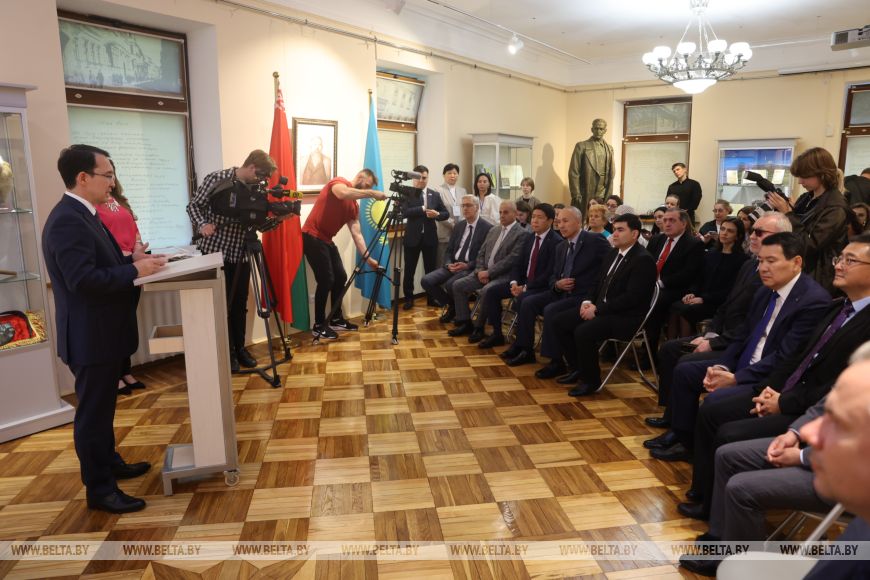
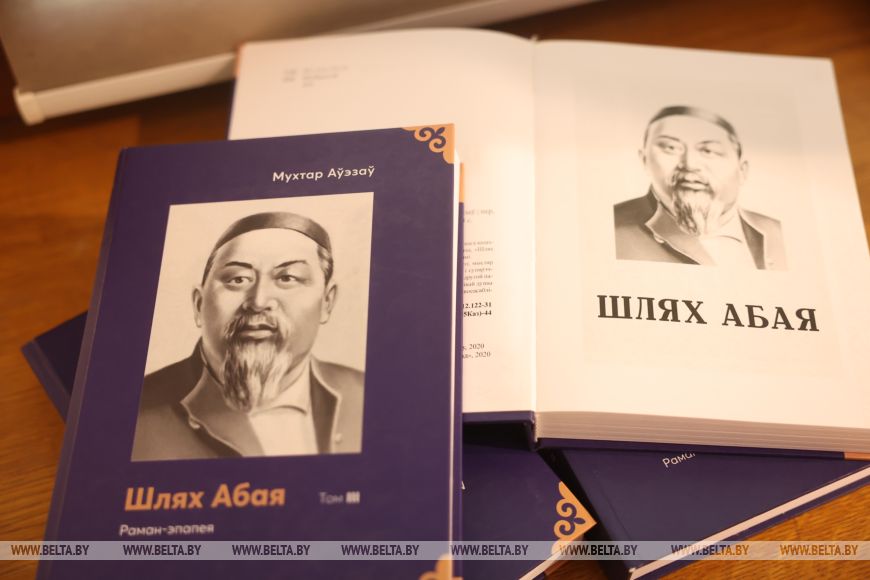
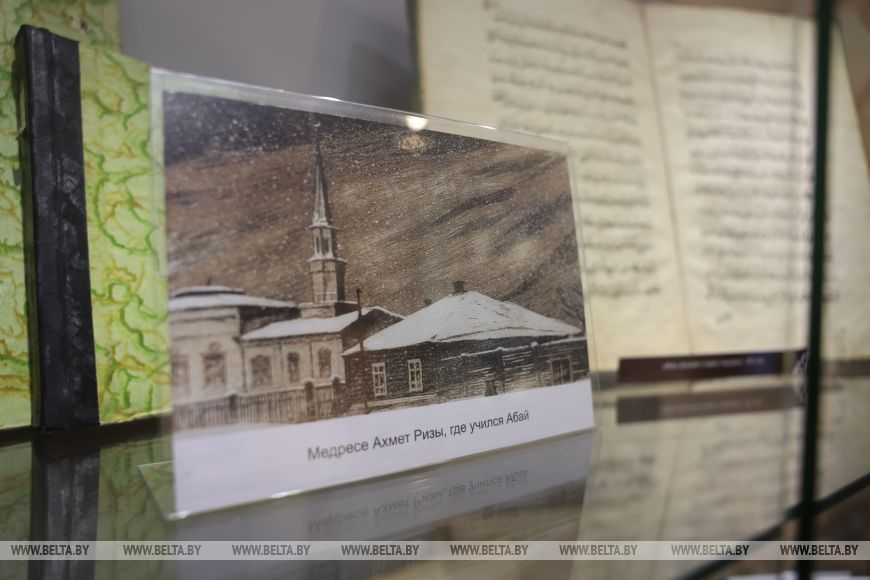
“The greatness of Abai Qūnanbaiūly lies in his aspiration to unite the rich Kazakh poetic tradition with the achievements of world culture, modern ideas of enlightenment, and communism. His poetic mastery and worldview made an invaluable contribution to the development of national spirituality and self-awareness,” Timur Zhaksylykov said.
Abai created about 179 poems and poetic works and translated over 56 works by classics of world literature. Among them are works by Adam Mitskevich, Alexander Pushkin, Lord Byron, Johann Wolfgang von Goethe, and Mikhail Lermontov. These translations have become a national treasure of the Kazakh people.
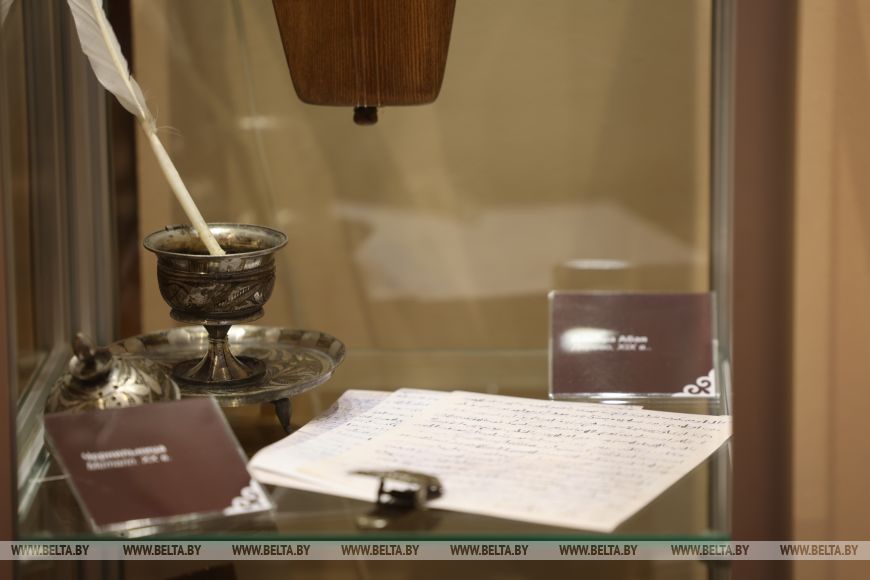
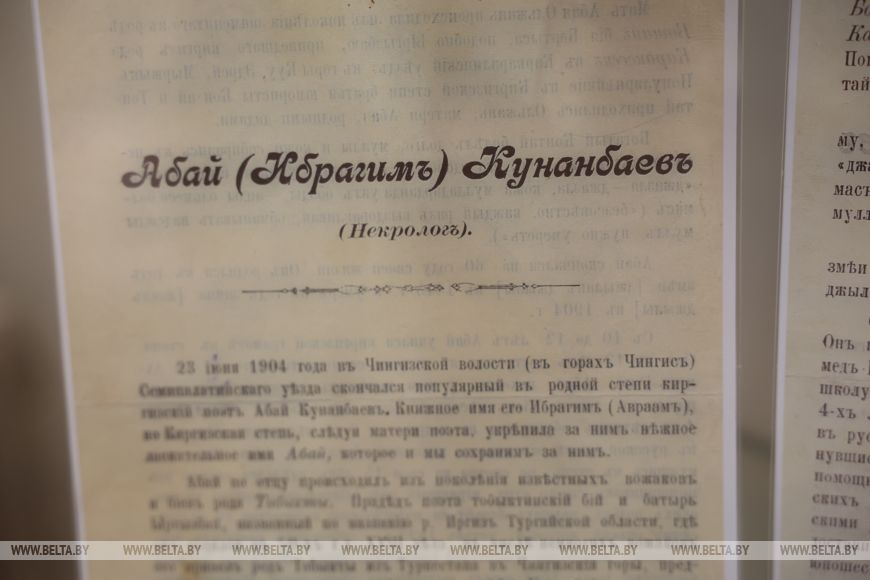
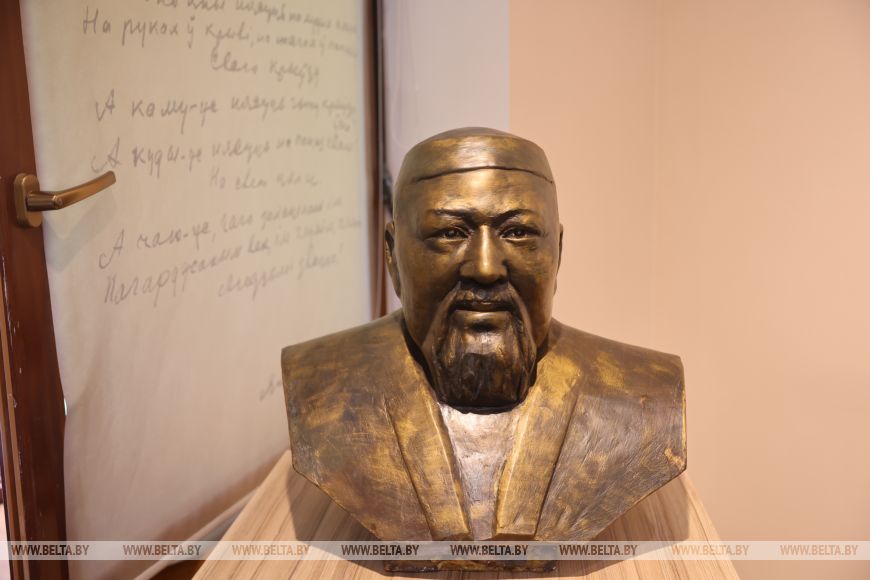
First Deputy Culture Minister Dmitry Shlyakhtin noted that it is very difficult to overstate Abai's contribution to the development of the Kazakh people. “We can call him, like Yanka Kupala, a prophet of his nation, who was ahead of its path, creating a literary language, which is extremely important for any people striving for self-sufficiency and independence. The items presented at the exhibition will give any visitor the opportunity to gain a deeper understanding of one of the most important figures in Kazakhstan's history. He is not just a poet, a writer, a philosopher - he is truly an encyclopedist who worked in many fields. Abai translated Russian and Western classical literature into Kazakh to create the necessary foundation for the further development of the people and the nation,” Dmitry Shlyakhtin emphasized.
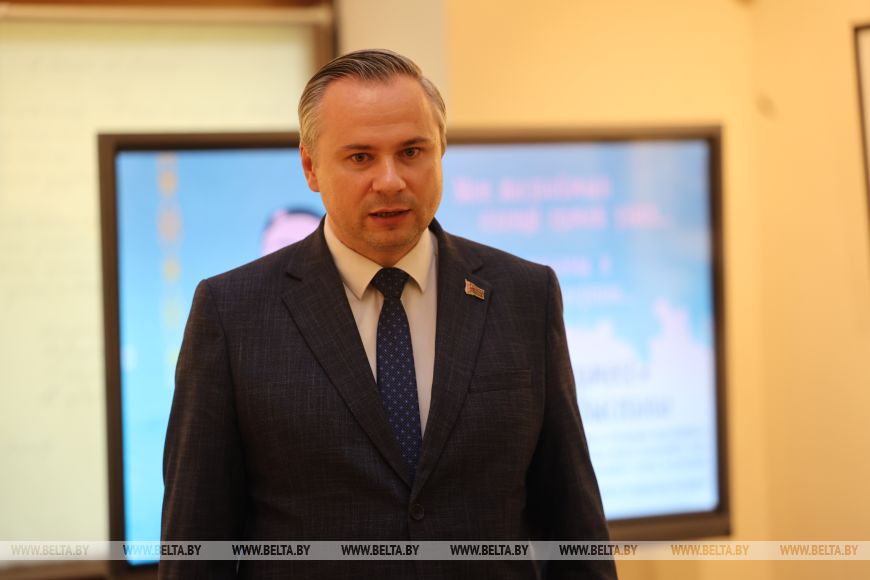
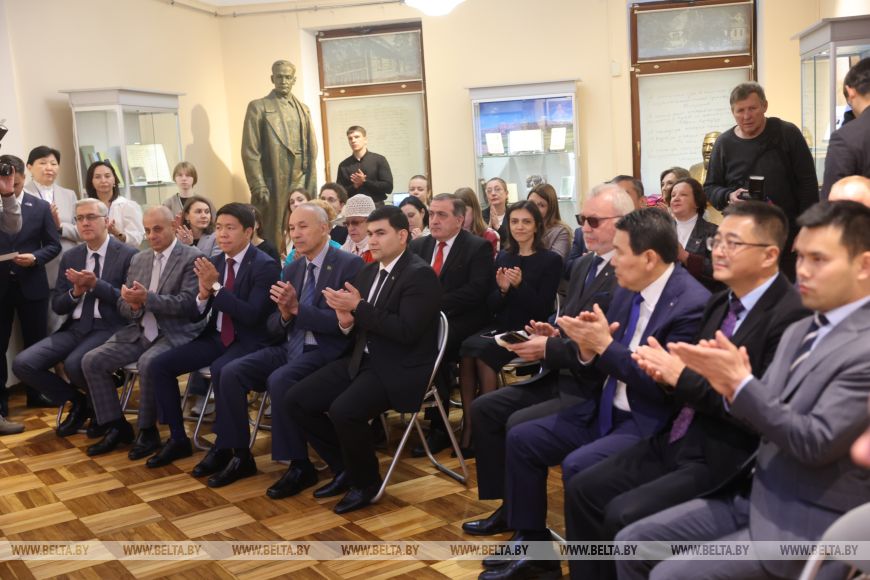
According to Timur Zhaksylykov, Abai's most famous work is The Book of Words, written in a classical style and consisting of 45 separate parts, brief parables, and philosophical portals. The Book of Words is a unique combination of artistic word and philosophical depth, a kind of moral code for the Kazakh people.
Abai's works have been translated into 116 languages. Belarusians can get familiar with his work through the poetry collection Steppe Expanse, compiled by Nikolai Metlitsky, and the biographical novel-epic The Path of Abai by Kazakh writer Mukhtar Auezov, which was translated into Belarusian by Mikhail Pozdnyakov. Furthermore, the Center for Kazakh Language, History, and Culture at the Belarusian National Technical University (BNTU) bears Abai's name.













